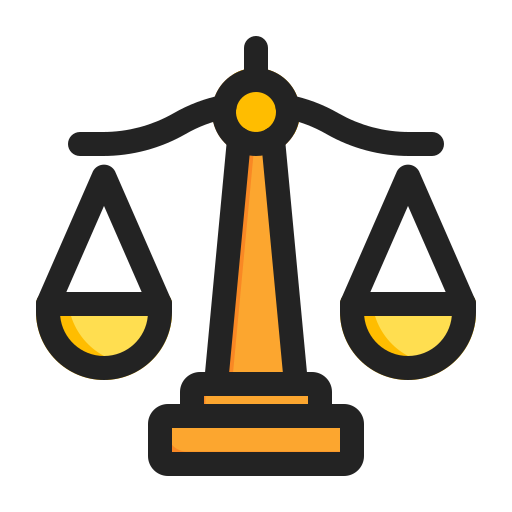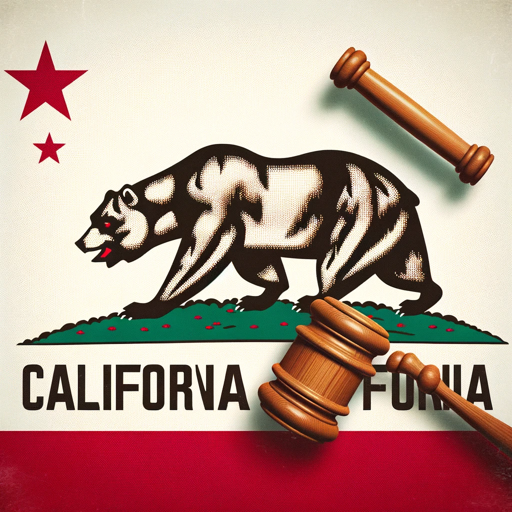Law Assistant-AI-Powered Legal Guidance
AI-Powered Legal Information at Your Fingertips
Draft a fillable month to month residential lease.
Draft a fillable Contract for Sale for a vehicle.
Can you explain tenant rights in California?
What's the difference between a will and a trust?
Related Tools
Load More
Legal assistant
Legal assistant for consulting, drafting contracts and legal documents

Legal Pro Drafting Assistant
Expert legal assistant for drafting motions, proposed orders, and other legal documents.

My Lawyer
AI legal assistant for everyone, expertly serving both lawyers and non-lawyers alike, now with enhanced inquiry for clarity.

Assistente JUSATUALIZA
Assistente JUSATUALIZA, a maior inteligência artificial jurídica do Brasil. Especialista em todos os ramos do direito. Ajuda os(as) advogados(as) e escritórios de advocacia a criarem estratégias para os processos e conflitos jurídicos que os profissionais

Magistrado Projurista
Um magistrado experiente ao seu dispor na versão 7.3. multifacetada.

Case Law Research Assistant By My Legal Academy
Enhance your legal research with the Case Law Research Assistant By My Legal Academy. Tailored for lawyers, it provides precise, up-to-date case law analysis, offering relevant references and citations. Streamline your case preparation with tailored, conf
20.0 / 5 (200 votes)
Introduction to Law Assistant
Law Assistant is a specialized version of ChatGPT designed to assist with legal queries. It provides users with detailed explanations of legal concepts, guidance on legal procedures, and clarifications on laws and regulations. The main purpose of Law Assistant is to enhance understanding of legal matters and offer support in navigating the complexities of legal systems. For example, if a user is unfamiliar with the process of filing a small claims court case, Law Assistant can outline the steps, required documentation, and potential outcomes based on jurisdiction-specific regulations. Additionally, Law Assistant helps demystify legal terminology and provide context for legal principles, making it easier for users to grasp the nuances of legal issues they may encounter.

Main Functions of Law Assistant
Explaining Legal Concepts
Example
A user wants to understand the difference between a tort and a crime.
Scenario
Law Assistant explains that a tort is a civil wrong that causes harm to an individual, leading to civil legal liability, while a crime is an offense against the state, punishable under criminal law. The explanation includes examples like negligence as a tort and theft as a crime, illustrating the distinction with real-world cases.
Guidance on Legal Procedures
Example
A user needs help with the process of obtaining a restraining order.
Scenario
Law Assistant provides step-by-step guidance on how to file for a restraining order, including the forms needed, the evidence required, and the court procedures involved. It also offers insights into the timeline and what to expect during hearings, tailored to the user's specific jurisdiction.
Clarifying Laws and Regulations
Example
A user seeks information on tenant rights under landlord-tenant law.
Scenario
Law Assistant details the tenant rights regarding rent control, eviction procedures, and maintenance responsibilities. It explains relevant laws and regulations, providing context and references to specific statutes or case law, helping the user understand their legal standing and options.
Ideal Users of Law Assistant Services
Individuals with Legal Questions
People who need clarification on legal matters but do not require immediate legal representation can benefit from Law Assistant. For instance, individuals facing issues like understanding their rights in a workplace dispute or navigating family law matters such as divorce or child custody will find the service particularly useful. Law Assistant offers preliminary information that can help them decide whether to seek professional legal help.
Small Business Owners
Small business owners often encounter legal questions related to contracts, employment law, and regulatory compliance. Law Assistant can provide guidance on these topics, helping business owners understand their legal obligations and rights. For example, if a business owner needs to draft a non-compete agreement or understand the implications of a new labor law, Law Assistant can offer valuable insights and detailed explanations.

Guidelines for Using Law Assistant
1
Visit aichatonline.org for a free trial without login; no need for ChatGPT Plus.
2
Specify your legal query clearly, providing relevant details such as jurisdiction and area of law.
3
Avoid sharing personal, confidential, or sensitive information. Frame your questions in a general and hypothetical manner.
4
Review the response and cross-check with official sources or a legal professional for accuracy.
5
Use the information provided responsibly and ethically, ensuring it is not used for unlawful activities.
Try other advanced and practical GPTs
Seventh-day Adventist Biblical Scholar
AI-powered tool for biblical scholarship

30-Day Journal Architect
AI-Powered 30-Day Journal Builder

Lead Magnet Creator
Create powerful lead magnets with AI

Lesson Slide Maker
AI-Powered Slide Creation Tool

ThinkDraft
AI-powered document wizard for excellence

Accounting Finance GPT by JustPaid
AI-powered Financial Reporting Simplified
Legal AI Tutor
AI-Powered Legal Insights

California Law
AI-Powered Legal Insight for California.

WebsiteGPT
AI-powered website creation for everyone

RewriterAI
AI-Powered Text Enhancement

Midjourney Prompt Architect
Craft AI-Driven Artistic Prompts.

Robo Prompt
Your AI-powered assistant for creative prompts

- Legal Research
- Case Analysis
- Compliance Check
- Policy Review
- Educational Aid
Common Questions about Law Assistant
What types of legal information can Law Assistant provide?
Law Assistant can explain legal concepts, provide information on legal procedures, and clarify laws and regulations across various jurisdictions.
Can Law Assistant provide legal advice?
No, Law Assistant offers legal information, not legal advice. For specific guidance, you should consult a qualified legal professional.
How can I ensure the accuracy of the information provided?
While Law Assistant aims to provide accurate information, it's essential to cross-check with official sources or a legal professional due to the complexity and frequent changes in legal systems.
Is it safe to share personal information with Law Assistant?
No, you should avoid sharing personal, confidential, or sensitive information. Frame your questions generally to protect your privacy.
What are common use cases for Law Assistant?
Common use cases include understanding legal concepts, clarifying legal procedures, getting information on laws and regulations, and educational purposes.